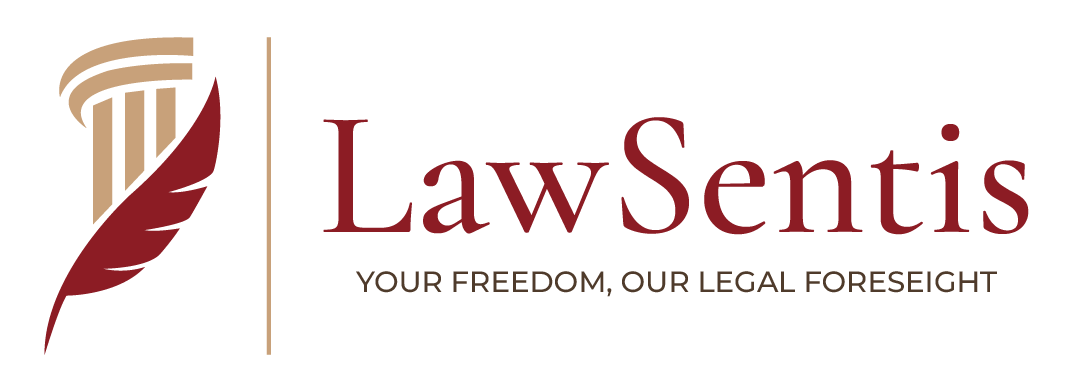The Immigration Skills Charge (ISC) is a mandatory fee payable by UK employers when sponsoring overseas workers under the Skilled Worker visa or the Global Business Mobility – Senior or Specialist Worker route, unless an exemption applies.
Introduced in 2017, the ISC remains a critical cost consideration for businesses navigating the sponsorship system. Below, LawSentis explains how it works, the recent policy changes, and the key exemptions that employers should be aware of.
Purpose of the immigration skills charge
The ISC was introduced on 6 April 2017 as part of the UK’s strategy to reduce reliance on overseas labour while investing in domestic skills. Originally, the revenue supported the Department for Education’s skills budget.
According to the Government’s White Paper “Restoring Control of the Immigration System” (May 2025), funds raised from the ISC will now be directed towards priority sectors, with the aim of upskilling the UK workforce and reducing medium-term dependency on migration.
While the charge has remained unchanged since 2017, the White Paper confirmed that fees will rise by 32%, in line with inflation. No implementation date has been published at the time of writing.
Who is responsible for paying the charge?
The ISC is always the employer’s responsibility. It cannot be passed on to the sponsored worker, whether directly or indirectly through salary deductions. Attempting to shift the burden onto the employee risks sponsor licence revocation.
Current and upcoming fees
The amount payable depends on whether the sponsor qualifies as a small/charitable organisation or a medium/large organisation, and on the duration of sponsorship.
Current ISC rates
| Sponsor Type | Per Year of Sponsorship | Per Additional 6 Months |
| Small business / charitable sponsor | £364 | £182 |
| Medium / large sponsor | £1,000 | £500 |
New ISC rates (pending 32% increase)
| Sponsor Type | Per Year of Sponsorship | Per Additional 6 Months |
| Small business / charitable sponsor | £480 | £240 |
| Medium / large sponsor | £1,320 | £660 |
A small or charitable sponsor is defined as:
- A company under the “small companies regime” (s.381 Companies Act 2006);
- A registered charity (UK, Northern Ireland or Scotland); or
- An organisation employing no more than 50 employees.
When the isc must be paid
The ISC is payable each time a Certificate of Sponsorship (CoS) is assigned to a worker, provided the worker will:
- Be applying for entry clearance for more than six months, or
- Be applying from inside the UK for any length of time.
Exemptions from the immigration skills charge
The law provides several important exemptions.
-
specific occupation codes
The ISC is not payable when sponsoring roles in research and higher education, including:
- Chemical, biological, and physical scientists (2111–2114)
- Biochemists and biomedical scientists (2113)
- Social and humanities scientists (2115)
- Natural and social science professionals n.e.c. (2119)
- R&D managers (2161)
- Other researchers (2162)
- Higher education teaching professionals (2311)
-
short-term sponsorship
Employers are exempt where entry clearance is granted for less than six months.
-
intra-company exemptions
Since 1 January 2023, the ISC does not apply to EU nationals (or Latvian non-citizens) on the Global Business Mobility – Senior/Specialist Worker route where:
- The EU business is part of the same sponsor group; and
- The UK assignment does not exceed three years.
-
switching from study
Workers switching from valid student routes (including Tier 4) to the Skilled Worker or Senior/Specialist Worker categories are exempt.
-
historic sponsorships
Workers who received a CoS under Tier 2 before 6 April 2017 may also fall outside ISC liability.
Note: The ISC applies only to workers. Dependants are not charged.
Consequences of non-payment
If the ISC is not paid when a CoS is assigned:
- The CoS is invalid until full payment is made.
- Visa applications relying on the CoS will be delayed or refused.
- If the charge is not paid within 10 working days of a Uk Home Office reminder, the worker’s application will be refused.
Refunds
Refunds are available in certain situations:
- Full refunds: If the visa is refused, withdrawn, or unused.
- Partial refunds: For unused six-month periods after the first year, or if a worker leaves employment early.
- Refunds may also be issued if a sponsor is later recognised as a small/charitable organisation.
Refund requests are usually processed within 90 days.
No refund is available if:
- The worker remains with the sponsor but changes role;
- The worker switches to another visa route while staying employed;
- The sponsor licence is revoked or made dormant.
How Lawsentis can help
Understanding and managing the Immigration Skills Charge is essential for compliance and financial planning. At LawSentis, we guide employers through:
- Assessing whether the ISC applies to their case;
- Identifying exemptions that may save costs;
- Managing refunds and ensuring compliance to protect the sponsor licence.
Contact our regulated immigration advisers today to discuss your sponsorship needs and ensure smooth workforce planning.
